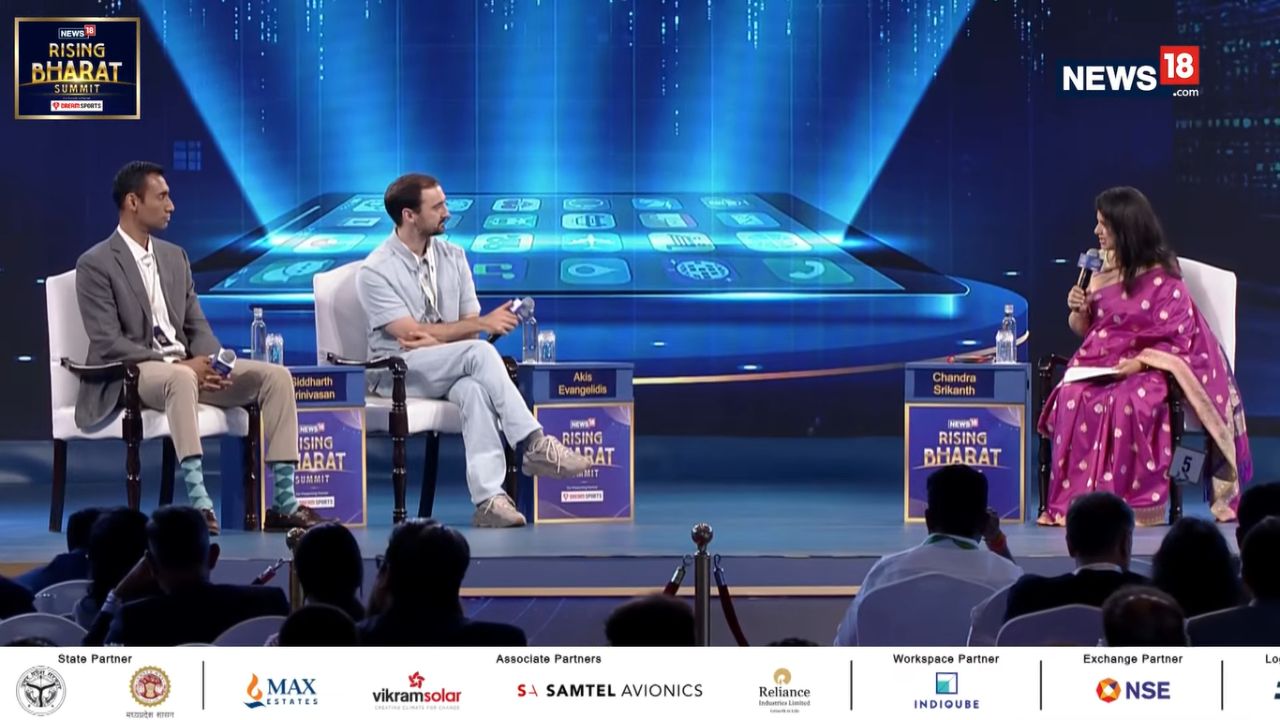From AI agents transforming smartphone interactions to real-time multilingual voice cloning, the Rising Bharat Summit 2025 spotlighted India’s pivotal role in the next wave of AI-powered consumer tech. Akis Ecangelidis from Nothing and ElevenLabs’ Siddharth Srinivasan shared insights into how artificial intelligence is reshaping the way people engage with devices and content—ushering in an era of seamless, personalized and purposeful tech experiences.
Akis Ecangelidis, co-founder of Nothing emphasized that traditional smartphones have remained app-centric and siloed for over a decade. He said, “The future belongs to adaptive, intuitive devices that understand user intent without relying on taps, menus, or notifications.” AI will become the connective tissue, acting as a dynamic soft layer between apps and users—reducing clutter, enhancing focus, and delivering context-driven experiences.
Notedly, Ecangelidis argued that AI won’t increase screen time but instead make interactions faster, more efficient, and more human.
Nothing, which already manufactures extensively in India, revealed that the country is now its biggest market globally. Despite recent global trade headwinds such as U.S. tariffs, the company sees minimal impact thanks to its strong local manufacturing partnerships. Ecangelidis also hinted at a deepening commitment to India—citing upcoming team expansion and a potential personal relocation from London.
The broader goal, as outlined by Nothing’s Ecangelidis, is not to increase screen time but to make smartphone interactions more productive and personalized. By enabling users to complete tasks in just a few minutes rather than losing time in endless scrolling AI promises to optimize digital routines. However, despite the growing capabilities, privacy concerns continue to linger. Many users remain wary of how AI handles their personal data, a hesitancy that Nothing attributes to a lack of visible, beneficial use cases.
Meanwhile, Siddharth Srinivasan, Go-to-Market India of ElevenLabs discussed about their cutting-edge voice cloning technology, which recently enabled Prime Minister Modi’s podcast to be dubbed in his own voice, in English. “This isn’t just accessibility—it’s personal global reach,” he said. The platform supports multilingual cloning in native voices within hours, opening doors for hyper-personalized content at scale.
Srinivasan pointed out that India has emerged as a particularly strategic market for this transformation. With over 100 million podcast listeners, 140–150 million voice-interacting users, and nearly 600 million video consumers, the country offers a fertile ground for voice AI to scale. Its linguistic diversity and booming creator economy further strengthen its position as a global voice tech hub.
The leaders agreed that India is not just a market, it’s the testbed for global AI innovation. With its young, digital-first population, multilingual landscape, and rapidly evolving user behavior, the country is poised to lead the next tech revolution.
